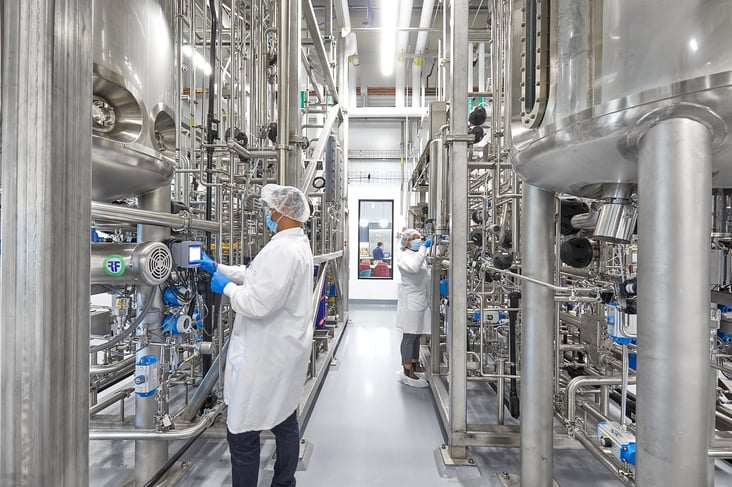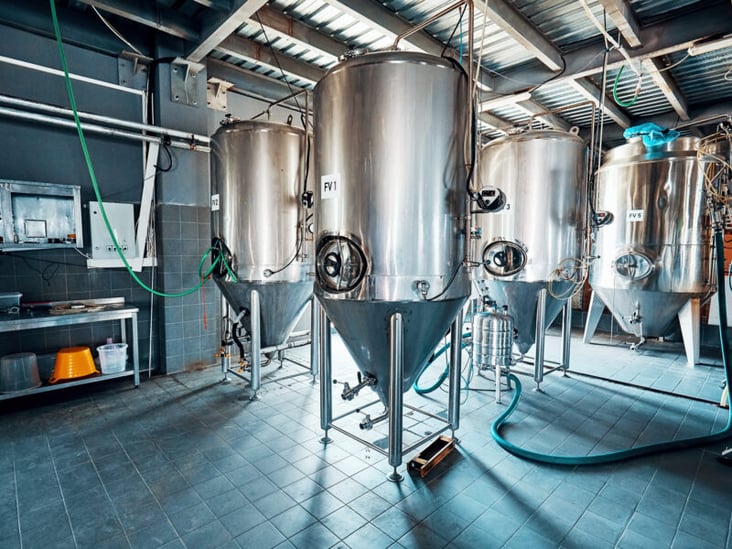Topic / Food & Agriculture / In-depth
Food-as-Software
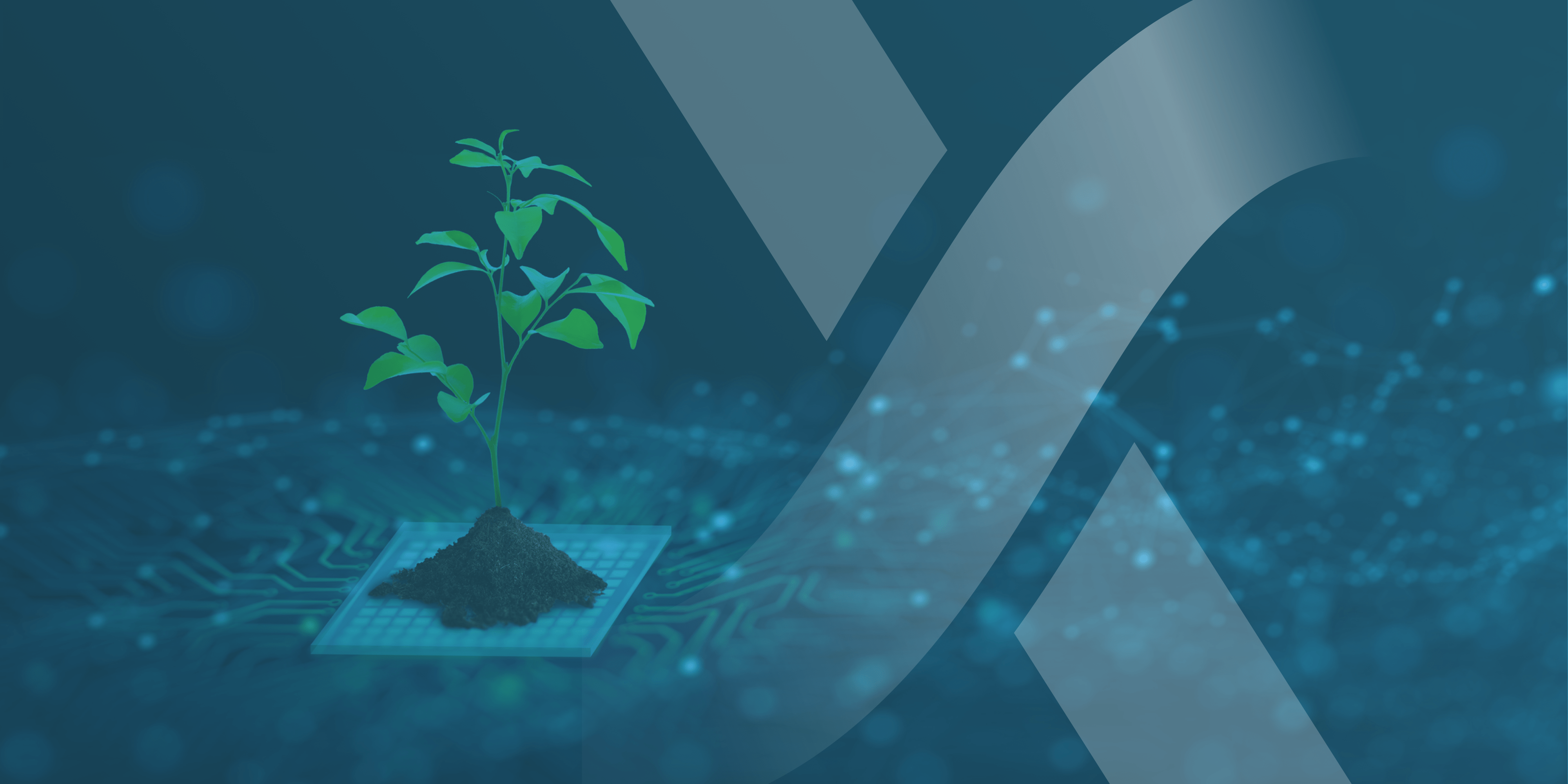
Food that can be designed anywhere, developed anywhere, downloaded anywhere and produced anywhere.
Food-as-Software (FaS)
Our current industrialized, animal-agriculture system will be replaced with a Food-as-Software (FaS) model.
Foods engineered by scientists at a molecular level will be uploaded to databases that can be accessed by food designers anywhere in the world.
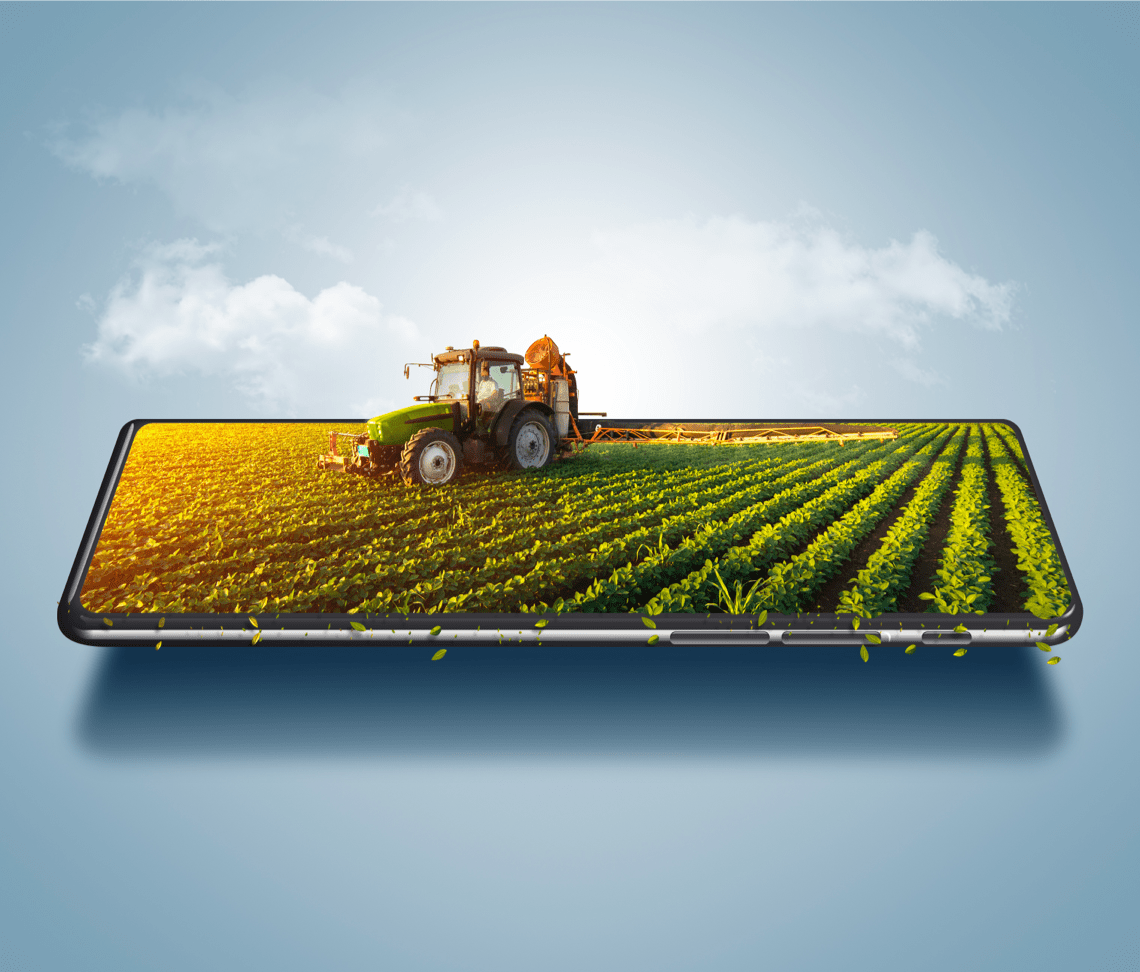
"Anywhere we brew beer we will be able to produce food."
- Tony Seba, RethinkX cofounder
A new model for our food production
In this model, food engineers will use databases as molecular cookbooks, designing food products the same way that software developers design apps.
Food will be tastier, cheaper, more nutritious, convenient, varied and personalized.
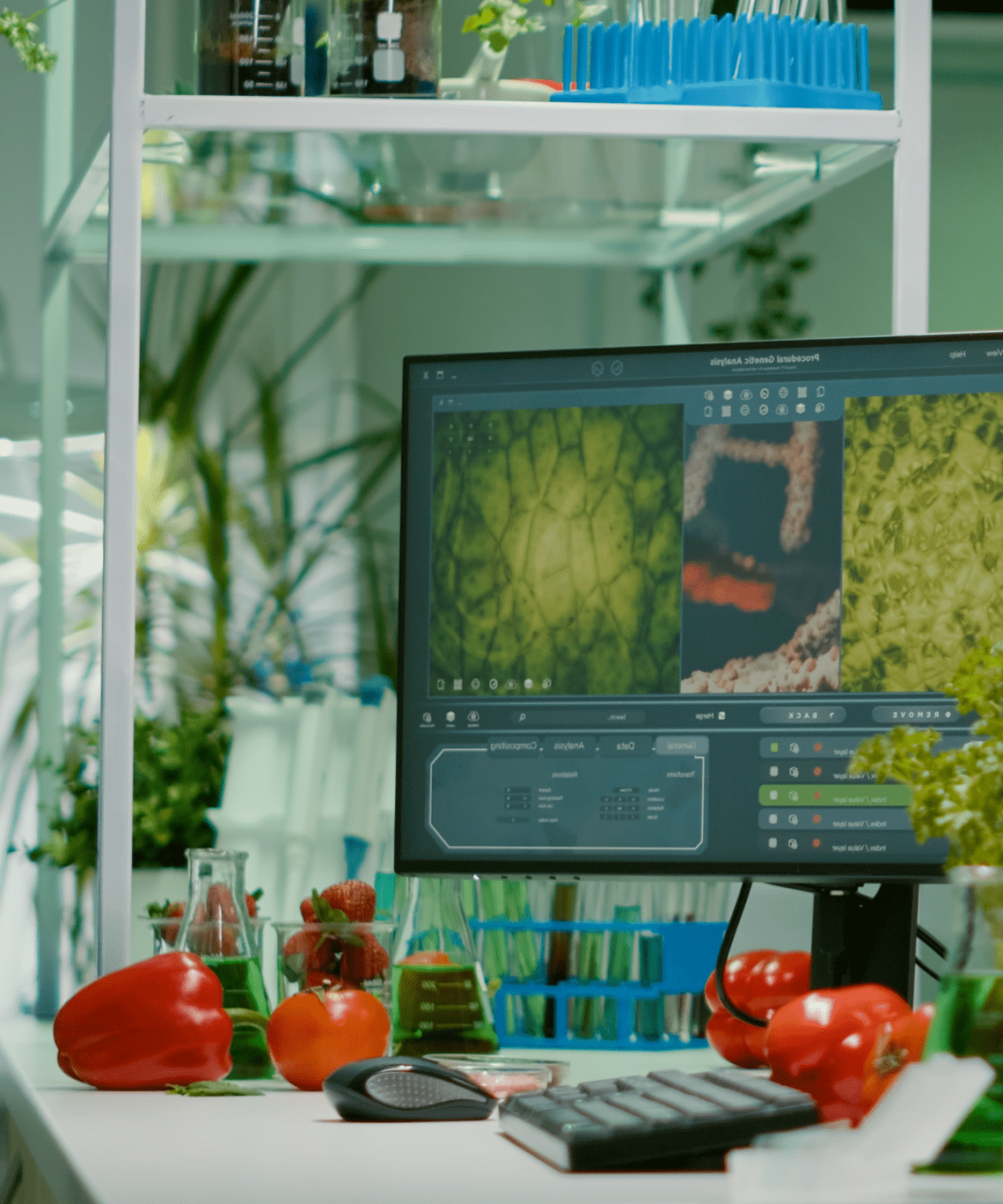
The need for the centralized production system we rely on today will disappear...
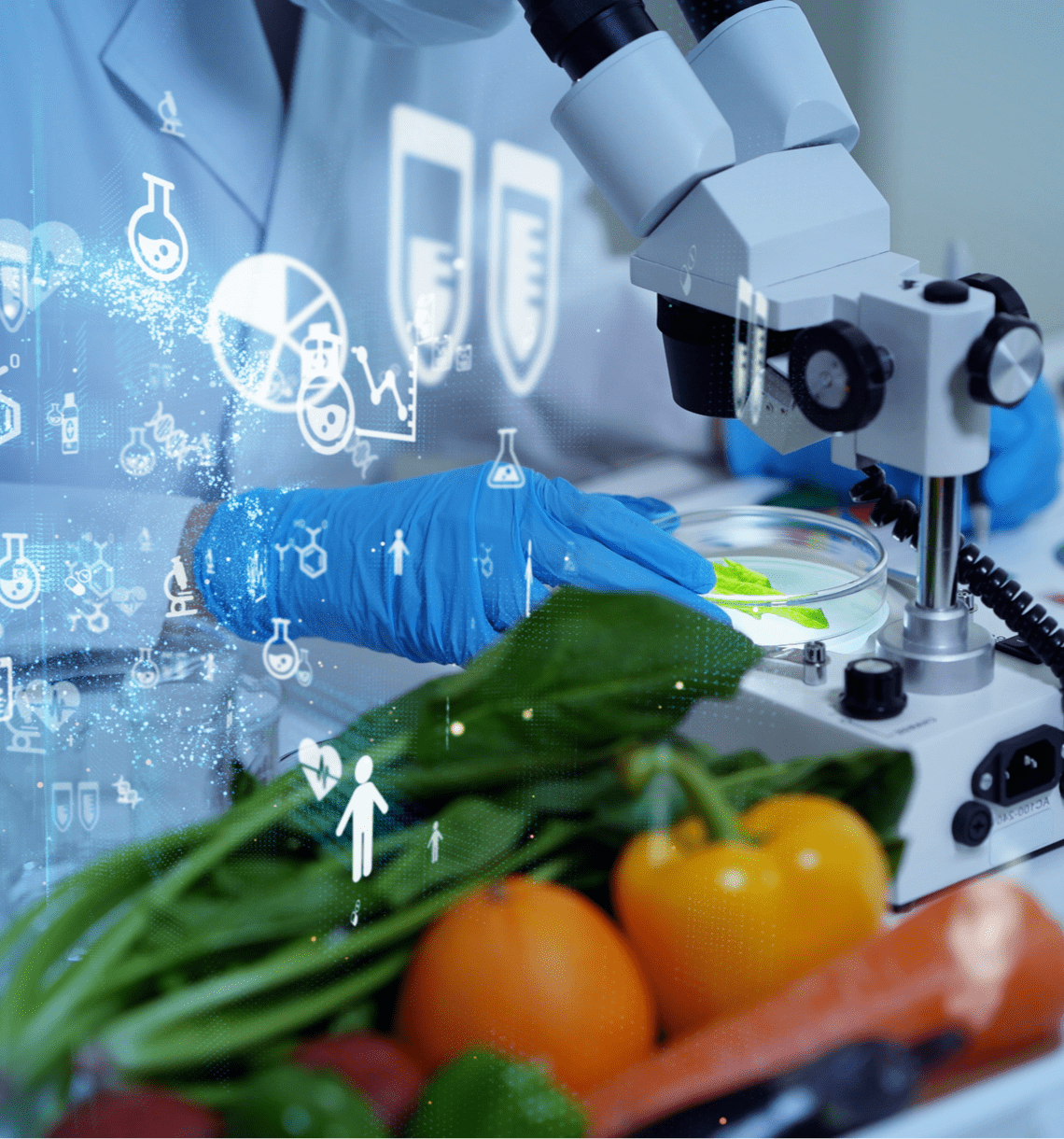
"Food engineers, and us as consumers, will soon become molecular chefs – choosing components as you would choose ingredients for a recipe and combining them to create nearly any food imaginable. By reading a person’s exact nutritional needs and designing a custom product to meet them, innovation in sensors and wearable technologies makes a level of food personalization possible that was until now inconceivable."
Tony Seba
RethinkX Co-Founder

Key features of the FaS disruption:
Food is designed using massive databases of molecules
This new model of food production and consumption will adopt certain principles of modern computing.

Products, costs and capabilities improve exponentially
FaS products will continually improve as food component databases grow, and cost and capabilities progress.
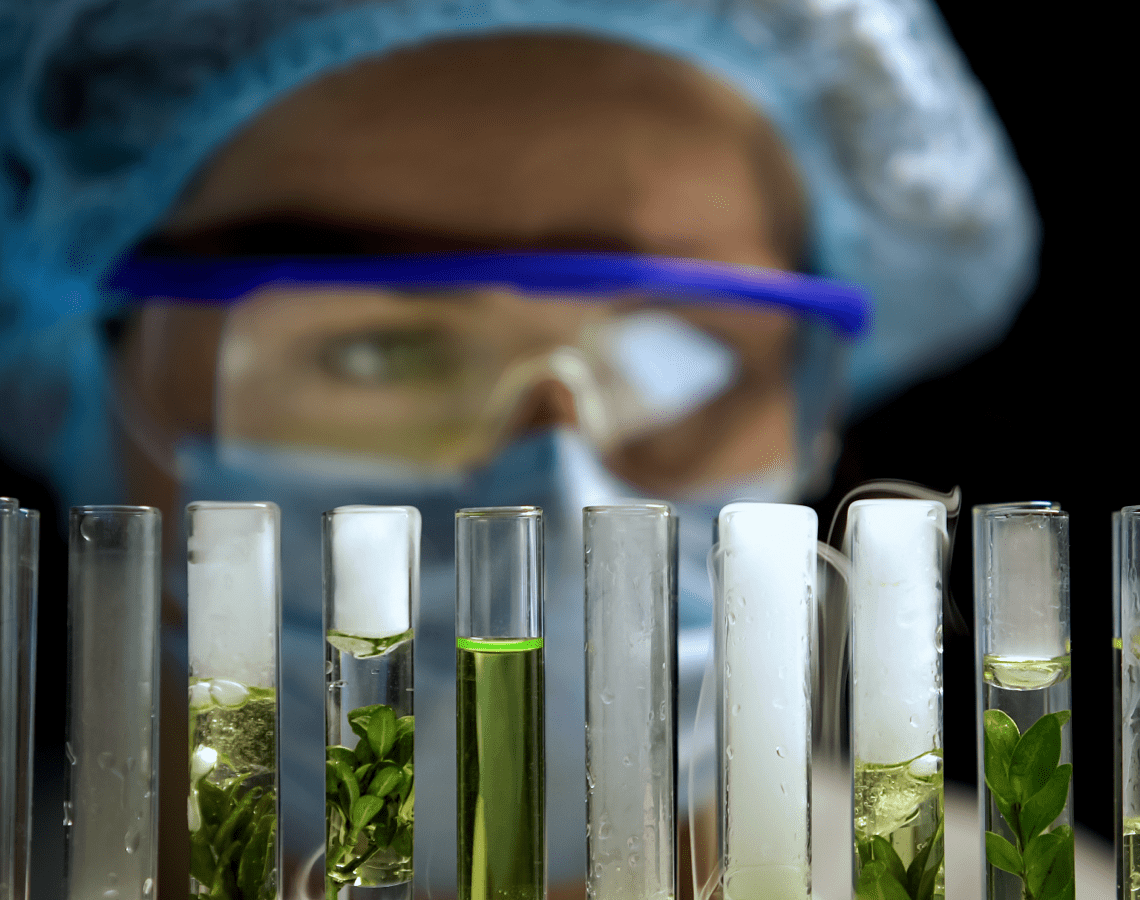
Taste, texture, and nutrition designed for the consumer
Designed food molecules are tweaked for variations such as taste and texture based on consumer preferences or nutritional requirements.

Methods and ingredients can be downloaded
Improvements in production methods or ingredients can be downloaded and incorporated almost instantaneously.
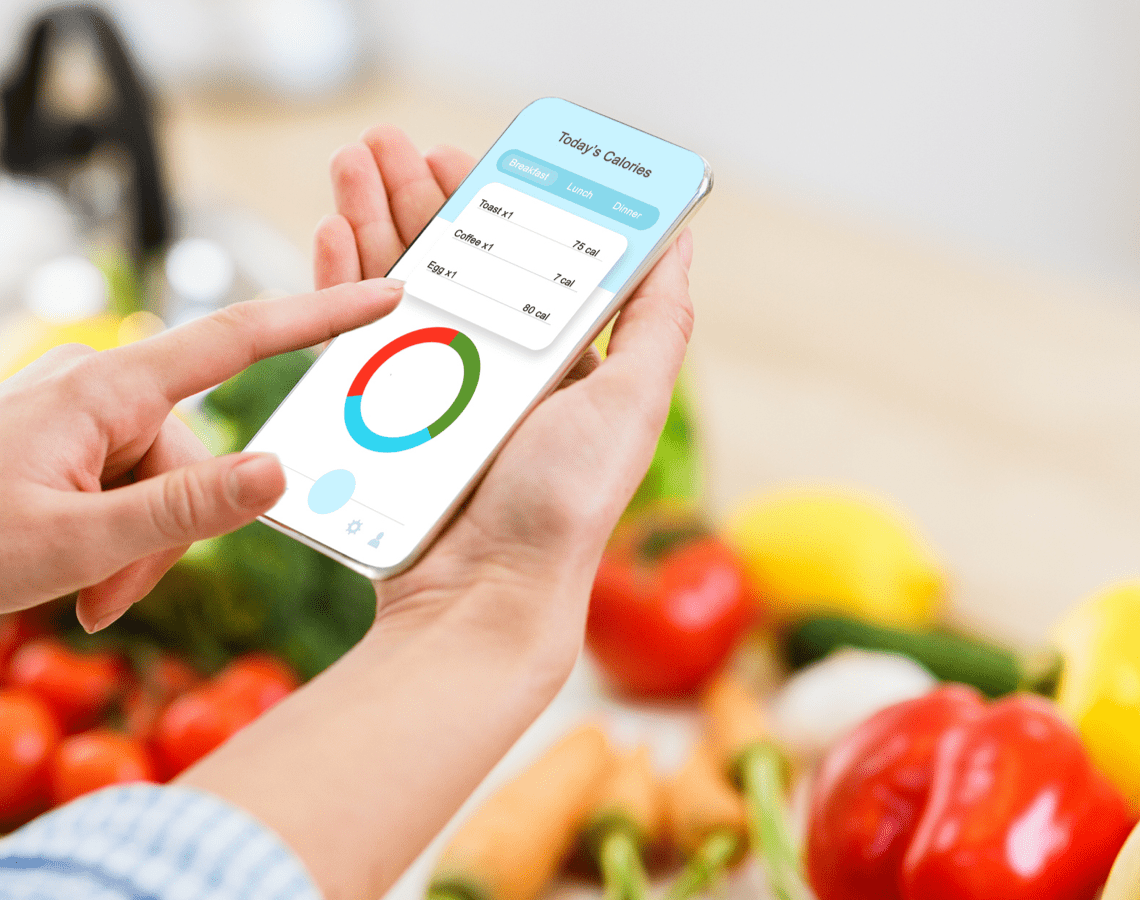
Decentralized, distributed food production
Molecules can be designed and downloaded anywhere. Food production is not limited by geographic area.

Driven by the convergence of biology, information and precision fermentation
FaS will be driven by the convergence of information and biotechnologies with disruptive novel foods: Precision Fermentation and Cellular Agriculture (PFCA).
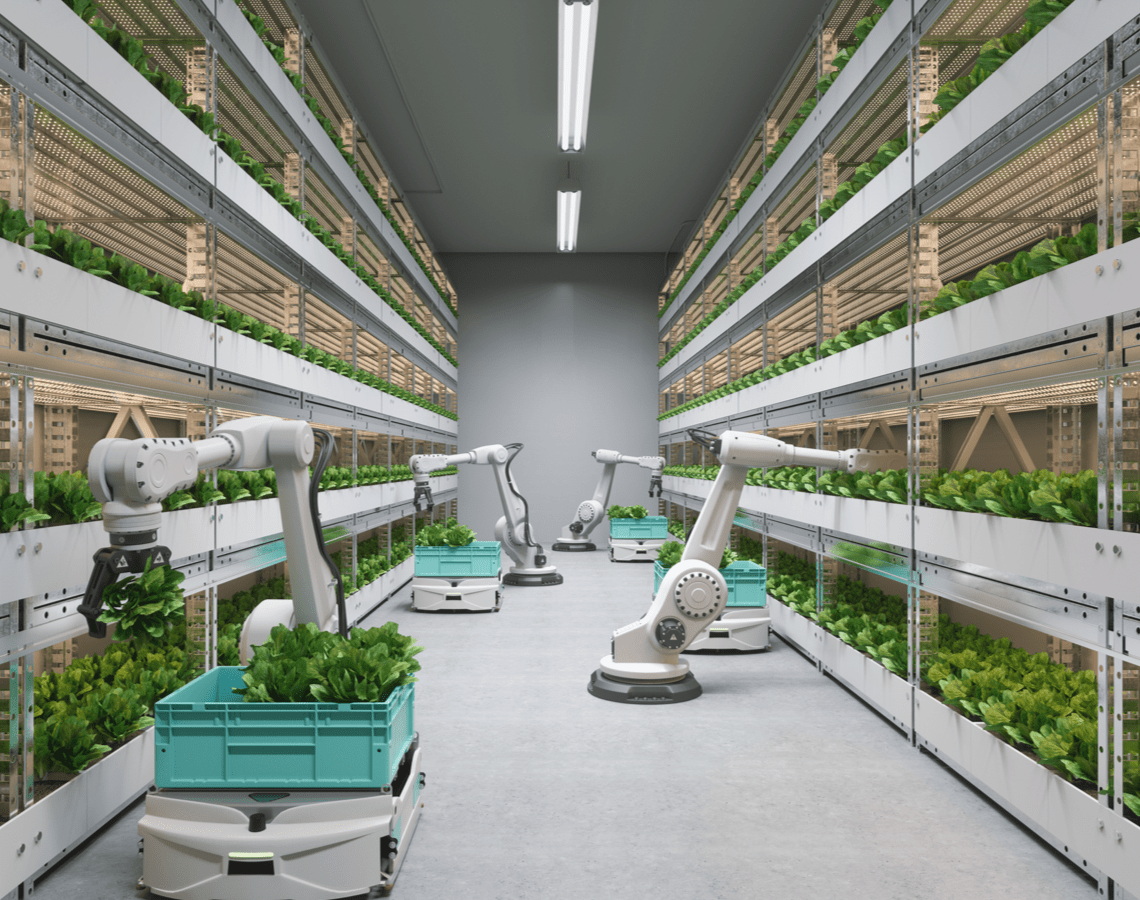
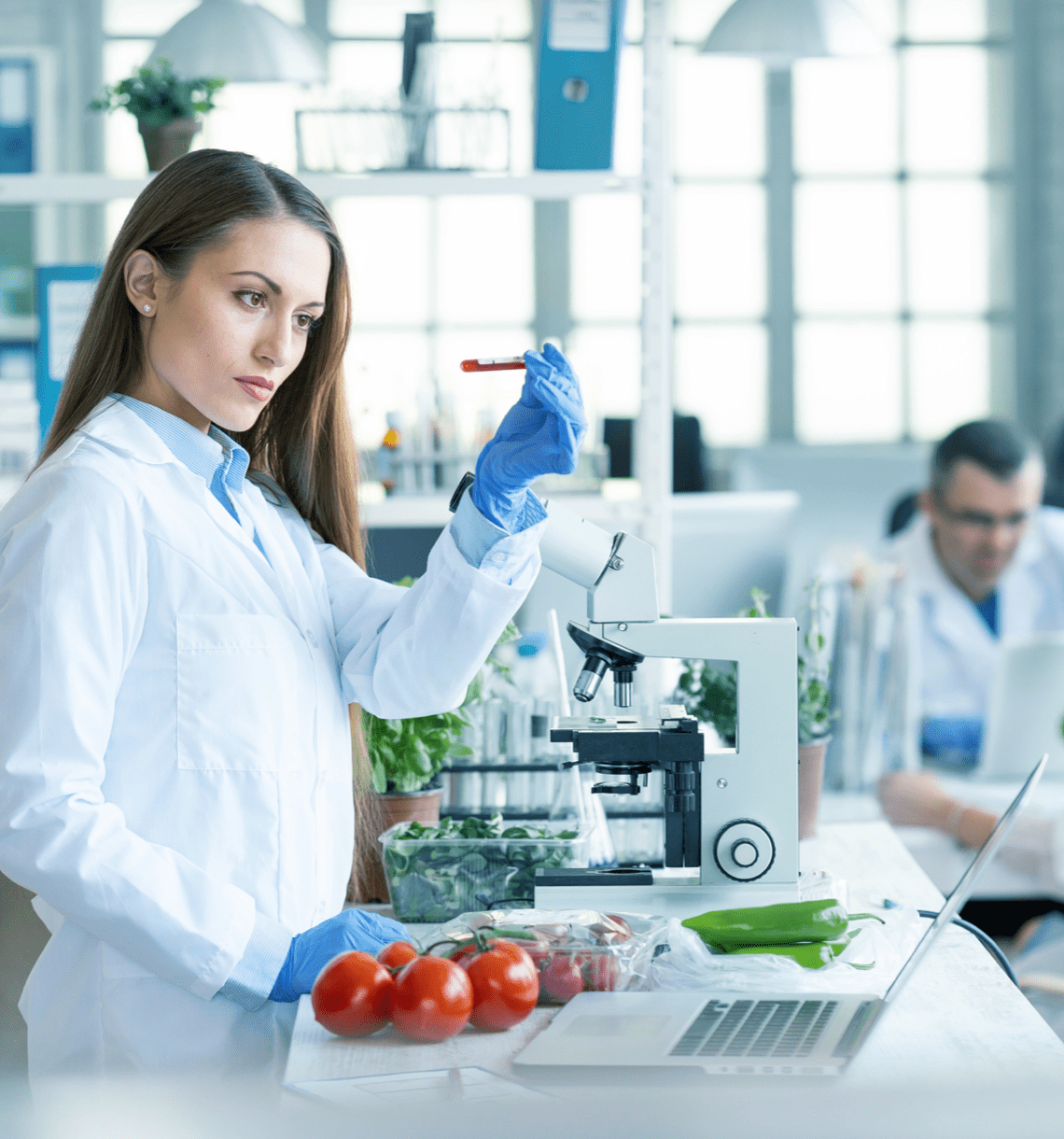
Food-as-Software allows for infinite product iterations and testing, exponentially improving at the speed of super-computing—not the glacial pace of animal and plant evolution.

Food-as-Software is our next big breakthrough.
It will transform our food production systems.
Technology disruptions drive systems change
From fishing nets to fertilization, from ploughing to refrigeration, technology disruptions have enabled us to transition from hunter-gatherers, to small-scale farmers, to industrial food producers.
As the pace of our technological development increases exponentially, the mechanization of food production, food processing and economies of scale have driven the cost of food down to the lowest it has ever been in human history.
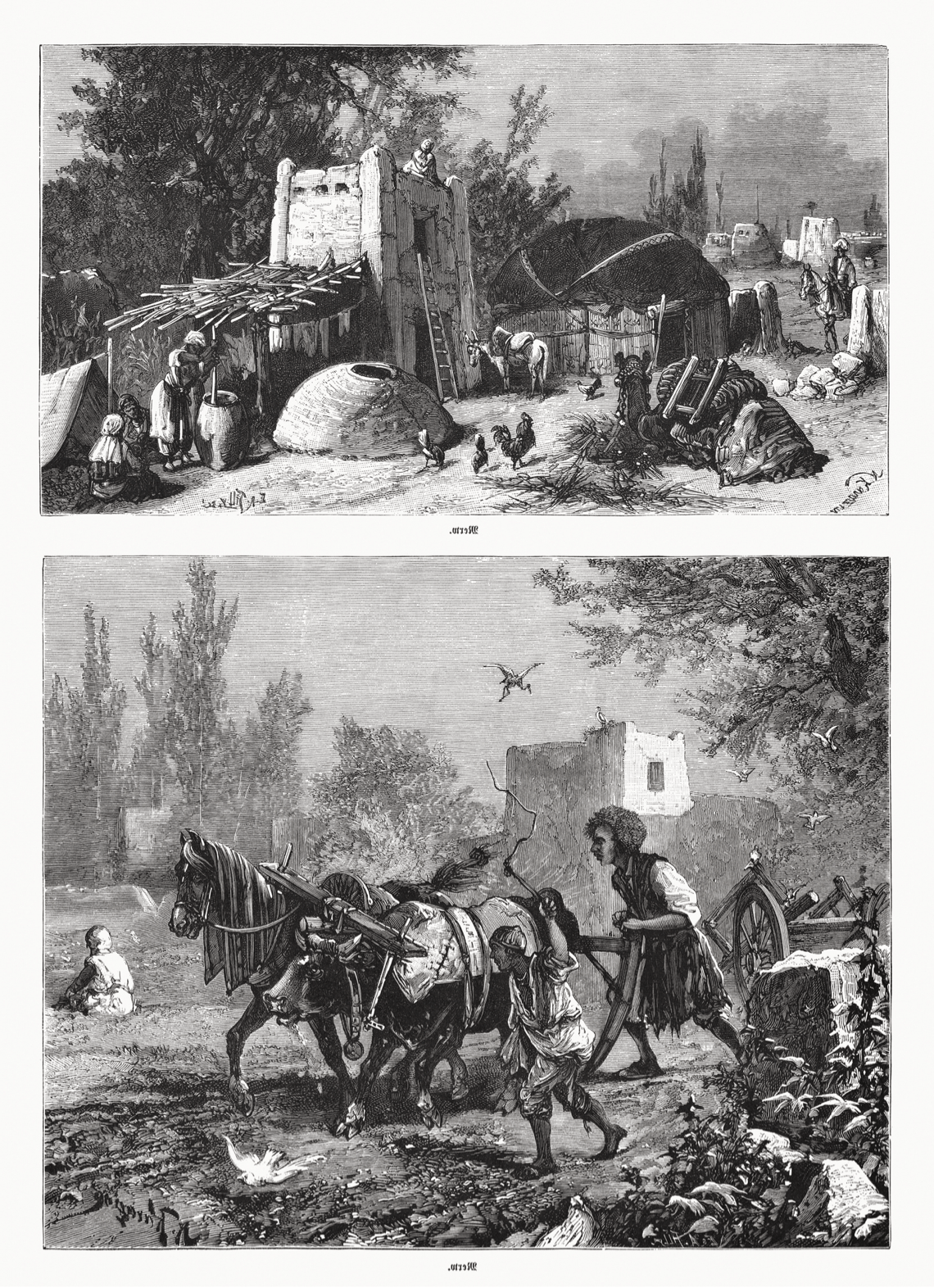
Efficient, superabundant and distributed food systems
The FaS disruption will result in a food system that is more efficient, abundant and kinder to the environment.

The future of food
Local food production
FaS will result in localized food-production systems that are far more stable and resilient than our current model.
Less price fluctuation & volatility
FaS will be shielded from volume and price volatility caused by the variations of seasonality, weather, drought, disease and other natural, economic and political factors.
Equal geographic advantage
Geography will no longer offer any competitive advantage to food production. FaS can be implemented and accessed from anywhere in the world.
Abundant & distributed
We will move from a centralized food system dependent on scarce resources to a distributed system based on abundant resources.
Multi-sector benefits
Many of the biological technologies developed for food production will also have applications in healthcare, cosmetics and material production.

“The prevailing production system will shift away from a model of centralized extraction and the breakdown of scarce resources that requires vast physical scale and reach, to a model of localized creation from limitless, ubiquitous building blocks—a world built not on coal, oil, steel, livestock and concrete but on photons, electrons, DNA, molecules and qubits. Product design and development will be performed collaboratively over information networks while physical production and distribution will be fulfilled locally. As a result, geographic advantage will be eliminated as every city or region becomes self-sufficient.”
James Arbib, RethinkX Co-Founder

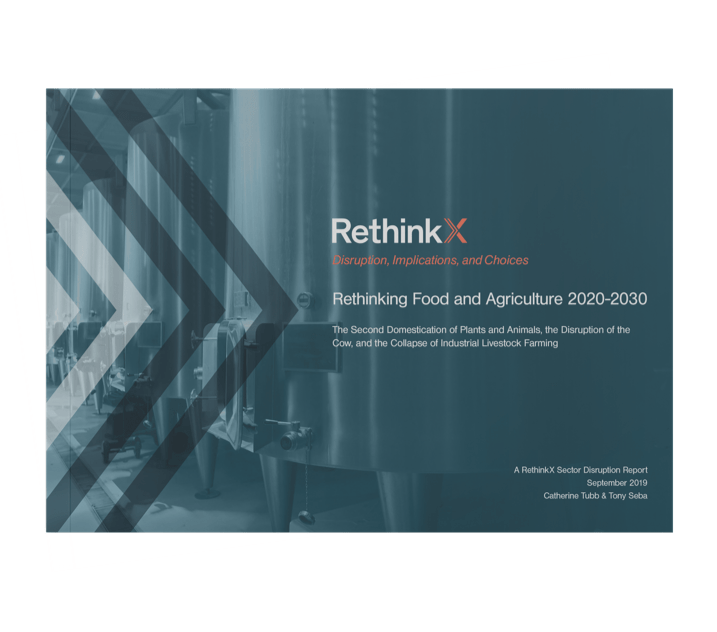
Free Download
Uncover Food-as-Software in more depth
Download our Rethinking Food & Agriculture report















